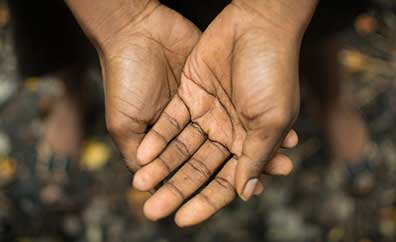
‘A personal legacy’: Quilts seek to honor lynching victims
Video Courtesy of Facing History and Ourselves
Willie Perkins. Zachariah Graham. Cornelius Robinson and Will Thompson.
Names are the only heirlooms still left from the four, who were all lynched at various times in Alabama’s history, and they are four of the thousands of people lynched nationwide who Lynda Tredway hopes to memorialize with her quilting project.
Since she began in 2013, Tredway has completed 24 quilts for nine states, including Alabama, and she estimates she has 41 quilts and three years left to completion.
Sewn into the front of each quilt is that state’s official tree or flower. Each leaf represents one of the names scrawled on the back.
There are scores of pine needles representing the hundreds lynched in Alabama, and it took three quilts to record them all.
“I’m a history teacher but not a historian, so I’d say I’m not trying to be as accurate as the Tolnay and Beck lynching database is,” Tredway said, referring to work done by Stewart Tolnay and E.M. Beck documenting lynchings. “The number isn’t as important to me as representing that, at one point, someone thought it was OK to commit an act of terror against another human being.”
As a history instructor who first began teaching in predominantly minority schools in Washington, D.C., in 1969, Tredway said it became “imperative” to become familiar with African-American history.
Her passion for telling the stories of lynching victims first blossomed as she studied the anti-lynching campaigns of Ida B. Wells Barnett. Tredway’s foray into quilting as a medium for “redemptive art” was inspired by the photography of Ken Gonzales-Day, who photoshopped lynching victims out of pictures to show mobs staring thirstily at naked trees.
“That said to me, ‘Why aren’t you representing this in what you do? You’re a fabric artist and quiltmaker. What would it be like to take on this large project to represent the people who were lynched in America?'” Tredway said.
So far, Tredway has completed Mississippi, Alabama, Georgia, Florida, South Carolina, North Carolina, Kentucky, Tennessee and Arkansas. Next is Virginia, and its difficult-to-stitch dogwood.
The white mother of a black daughter, Tredway said the project is a personal, spiritual practice.
She says aloud the name of each lynching victim before writing it on the back of the quilt. In so many cases, Tredway may be the first person in decades to utter these names. She preserves them in the hope she won’t be the last.
“I feel like a memory keeper. . . . It feels like a personal legacy piece to me,” Tredway said.
This past April, Tredway’s journey led her to Montgomery where the nonprofit Equal Justice Initiative unveiled the National Memorial for Peace and Justice, the nation’s first memorial to more than 4,000 known black lynching victims, and the Legacy Museum, which traces the history of slavery through lynching to present day mass incarceration.
At the time, Tredway called it a “holy experience.” She recognized so many of the names.
The visit also solidified the purpose of Tredway’s mission. She marveled at EJI’s steel pillars emblazoned with the names of those killed for the color of their skin under the guise of justice. Here was a horrible truth that, through art, allowed people more time to spend with it and understand it.
“The thing people say to me the most (about the quilts) is, ‘How can something this beautiful be about something so horrible?’ The second thing is, ‘I can look at this longer than a lynching photo and take in the history,'” Tredway said.
Quilting has long been a traditional medium for African-American art. In Gee’s Bend, Alabama — a long-segregated, river-bound peninsula inhabited mostly by descendants of slaves — quilting remains an honored tradition passed on through the generations.
Tredway visited Gee’s Bend and spoke with those quiltmakers. It was just another reminder that her project is larger than 65 quilts.
“It does feel like I’m doing this for more than me, like I’m doing this for a larger understanding. The honor really goes to the people who had to endure this horror,” Tredway said. “If I can represent that in any way that commemorates them and honors the incredible sacrifices they have made, then I feel like I might have contributed a small part to us reconciling.”
